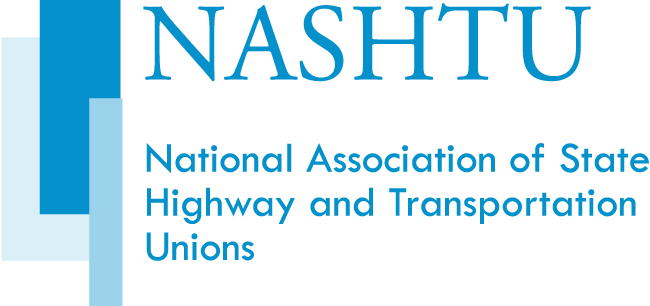Welcome to the NASHTU Website
The National Association of State Highway and Transportation Unions (NASHTU) is dedicated to ensuring that federal transportation dollars are spent on cost-effective, safe projects that serve the public interest. NASHTU is comprised of 38 unions and associations representing hundreds of thousands of state and locally employed transportation engineers, construction managers and inspectors, technical workers and related public servants from throughout the United States.
U.S. DOT Secretary Attends NASHTU Conference
The 24th Annual NASHTU Conference was a resounding success, attracting more attendees than in recent years and attracting high-profile speakers, including U.S. DOT Secretary Pete Buttigieg. The conference was held June 3-5, 2024 in Washington D.C.
The Annual NASHTU Conferences are a chance for transportation unions to come together and strategize on federal and state issues of mutual concern, including outsourcing, transportation funding, and worker safety issues.
NASHTU attendees also heard from transportation and labor leaders throughout the conference. Another conference highlight was a presentation from NTSB’s Director of Highway Safety, Dr. Robert Molloy. His presentation focused on the many outsourcing failures that led to the collapse of a pedestrian bridge under construction at Florida International University in 2018.
NASHTU will once again be hosting a free, virtual two-hour conference this fall. Dates are still to be determined but will be announced soon.
NASHTU Notes
April 16, 2024
Baltimore Bridge Collapse Could Wipe Out Federal Emergency Funds
The Washington Post is reporting that Maryland could jump ahead of states that have waited for more than a decade for emergency highway money as the federal government commits to providing full funding to replace the Francis Scott Key Bridge after it collapsed on March 26 in Baltimore.
The bridge collapsed after it was struck by a massive cargo ship leaving the Port of Baltimore. The bridge spanned the lower Patapsco River and was one of three crossings over the Baltimore Harbor. It carried approximately 11.5 million vehicles annually.
The Federal Highway Administration’s emergency relief fund, which reimburses states to rebuild or repair highways after disasters, has a $2.1 billion backlog of projects and only $89 million on hand.
The fund does not provide funding on a first come, first serve basis, which leaves some states waiting years to be reimbursed. According to the article, the Baltimore bridge could be moved to the top of the list and wipe out all available funding, which in turn would put pressure on Congress to act quickly to refill the fund’s coffers.
The article includes quotes from Members of Congress discussing the need to act quickly to add more funds so that their states can continue to access emergency reimbursement should the bridge collapse wipe out the funding.
“We also have a responsibility to support every other community that has been devastated by a disaster because we are all in this together. No state or county, big or small, red or blue, wealthy or not, can shoulder the burden alone,” Senator Brian Schatz (D-HI) said on the Senate floor Wednesday. “When a disaster is so big, so catastrophic for any one state or locality to handle, it falls on the federal government to step up and help.”
Read the full Washington Post article here.
